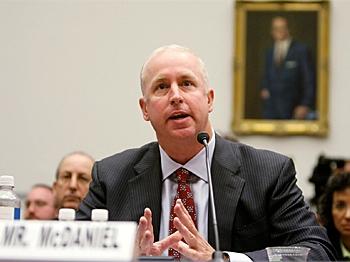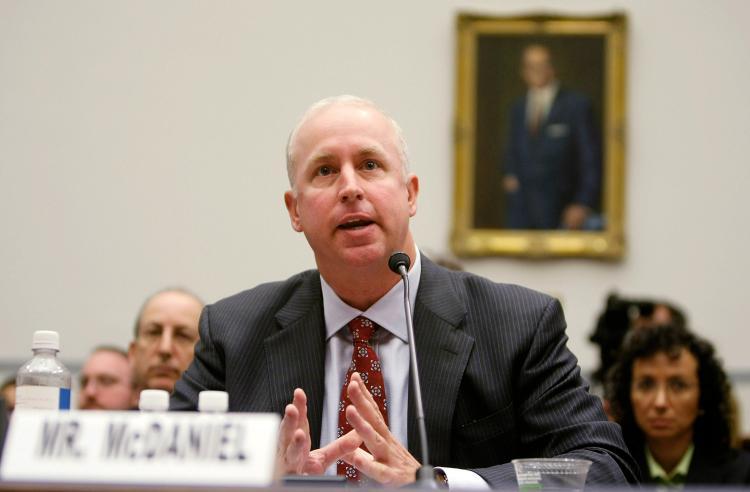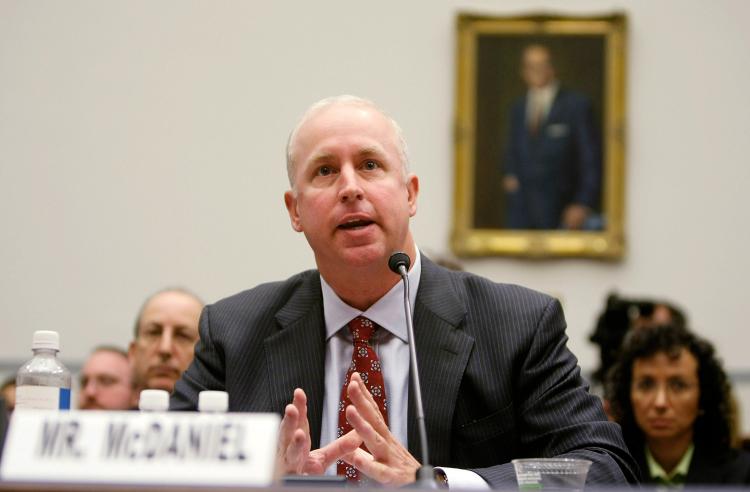Credit Rating Agencies Under Fire
Credit rating firms are under fire for supposedly neglecting deep problems in the mortgage industry.

Raymond McDaniel, chairman and CEO of Moody's Corporation, testifies during a hearing before the House Oversight and Government Reform Committee on Capitol Hill October 22, 2008 in Washington, DC. Alex Wong/Getty Images
|Updated:





